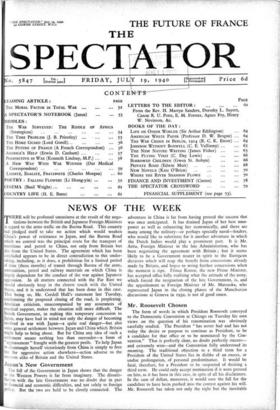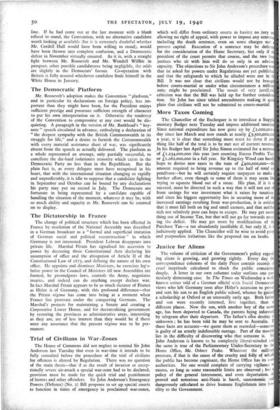Mr. Roosevelt Chosen
The form of words in which President Roosevelt conveyed to the Democratic Convention at Chicago on Tuesday his own views on the question of his renomination was obviously carefully studied. The President " has never had and has not today the desire or purpose to continue as President, to be a candidate for that office or to be nominated by the Con- vention." That is perfectly clear, no doubt perfectly sincere— and extremely wise—and the Convention fully understood its meaning. The traditional objection to a third term for a President of the United States lies in dislike of an excess, or undue prolongation, of personal predominance. It would be fatal, therefore, for a President to be suspected of desiring a third term. He could only accept nomination if it were pressed on him, as it has been in this case, in spite of all his disclaimers. In the case of defeat, moreover, it would ease the fall for the candidate to have been pushed into the contest against his will. Mr. Roosevelt has taken not only the right but the inevitable line. If he had come out at the last moment with a blank refusal to stand, the Convention, with no alternative candidate worth looking at available (for it is extremely doubtful whether Mr. Cordell Hull would have been willing to stand), would have been thrown into complete confusion, and a Democratic defeat in November virtually ensured. As it is, with a straight fight between Mr. Roosevelt and Mr. Wendell Willkie in prospect, other possible candidatures being negligible, the odds are slightly in the Democrats' favour. Co-operation with Britain is fully assured whichever candidate finds himself in the White House in January.



































 Previous page
Previous page